This past Friday, June 20th, Governor Greg Abbott signed House Bill 2038 (HB2038) into law—a landmark piece of legislation designed to directly address the acute physician shortage facing Texas and the United States at large. This new law aims to attract highly qualified medical talent from around the world to practice medicine in medically underserved communities across the State of Texas.
According to a 2024 report by the Association of American Medical Colleges (AAMC), it is estimated that by 2036, the United States will face a national shortage of approximately 86,000 physicians, leaving certain parts of the country to become Healthcare Deserts. The AAMC and other healthcare leaders have warned that without substantial investment in physician training and retention, many regions will experience exactly that kind of scarcity. This shortage is driven by a rapidly aging population with increasing healthcare needs, a significant portion of the physician workforce nearing retirement (over 20% are 65 or older), and insufficient growth in medical residency positions to meet demand. We are looking at substantial shortages of doctors that will not meet our future healthcare demands.
In response to this looming crisis, Texas lawmakers came together in an effort to craft and pass HB2038, which provides a targeted, innovative solution.
Effective September 1st, 2025, under the provisions of HB2038, highly specialized Foreign Medical Graduates (FMGs) who meet the following requirements will be eligible for a provisional medical license to practice in Texas under institutional supervision for up to three years:
Possess a valid foreign medical degree from a school eligible for ECFMG (U.S. Educational Commission for Foreign Medical Graduates) certification.
Are licensed in another country within the last five years and are in good standing.
Have completed postgraduate training (such as residency), or have at least 10 years of clinical experience in countries where residency is not required.
Have passed the required U.S. medical board examinations and demonstrate proficiency in the English language.
Hold a job offer from a Texas healthcare employer (such as a hospital, ER center, or clinic).
Are authorized to work in the United States.
This provisional license will allow them to serve under the supervision of the hiring institution, helping to fill critical gaps in healthcare access, particularly in underserved communities.
The Texas Medical Board has until January 1st, 2026, to develop and implement the necessary regulatory framework for enforcing the law.
HB2038 represents a bold and pragmatic step forward, positioning Texas as a national leader in proactively addressing physician shortages and reinforcing the state’s commitment to expanding access to quality healthcare.
Why is this important?
A medical residency in the U.S. is hands-on, supervised training that newly graduated doctors undergo in hospitals or clinics to specialize in a field and gain real-world clinical experience. It’s the bridge between medical school and independent practice, where theory becomes practice and responsibility deepens. The U.S. medical residency system began to take formal shape in the late 19th century, but it was William Stewart Halsted at Johns Hopkins Hospital who is widely credited with establishing the first structured residency program around 1889.
Historically and up until now, foreign-trained specialists who intended to practice medicine in the United States have traditionally been required to repeat a full U.S. residency to obtain licensure in addition to taking the United States Medical Licensing Examination (USMLE), also known as the boards. This law eliminates the residency barrier, which can range from 3-7 years of training depending on the specialty they intend to pursue.
The board examinations consist of three components: Step 1, Step 2 Clinical Knowledge (CK), and Step 3. Up until 2020, Step 2 consisted of two separate components. The first being the CK or Clinical Knowledge, which is a written test, and the Step 2 CSA or Clinical Skills Assessment. The Clinical Skills Assessment was an integral in-person exam involving simulated clinical interactions with standardized patients.
In 2020, the USMLE decided to suspend the Clinical Skills Assessment for the duration of the COVID-19 pandemic. It wasn’t until early 2021, however, that the USMLE decided to discontinue the test, removing it permanently from the board examination requirements.
To supplement the requirements of the clinical skills assessment, foreign medical graduates are now required to take an Occupational English Test or OET Medicine. This exam is made exclusively for physicians, assuring their knowledge and, more importantly, an understanding of complex medical terminology. Ensuring physicians have not only the ability to comprehend this language but also the ability to put it into simpler terms for patients to understand.
Other states have passed laws similar to HB2038, most notably Tennessee, Florida, and Idaho. The state of Tennessee, in 2023, became the first to take this monumental step in allowing competent foreign medical professionals to avoid repeating residency to obtain licensure, instead going through a provisional license process in which they are supervised for a short period and then can pursue full, unrestricted licensure.
Additionally, last year, Governor Ron DeSantis signed a similar law for those foreign medical graduates seeking licensure to practice in the State of Florida. As will be the case with the Texas Medical Board, the Florida Board of Medicine also outlined implementation rules for the law.
The Florida law stipulates that physicians who meet the requirements established by the ECFMG, including Step 3 of the USMLE, are eligible to receive a license to practice medicine contingent on the fact that they receive an offer of employment and keep that employment for the following two years. The Florida Board of Medicine established that if applicants don’t meet all of the requirements but are considered qualified by the Board, they may be eligible to receive a restricted license.
If Texas can learn from other states that have passed similar laws, it’s that clarity is key. Establishing clear rules that can be navigated by prospective applicants will be fundamental to the success of this initiative.
The United States is one of the only countries in the developed world to require specialist physicians to redo the medical residency, unlike Canada, Australia, and the European Union.
Easing state licensing requirements is a step that many states are willing to take to remedy the physician shortage.
Texas‘ physician shortage is one of the most significant in the country. Studies have shown that Texans face some of the longest wait times to see specialist physicians. By 2030 alone, it is projected that Texas will face a shortage of approximately 20,400 physicians. Making this easing in the pathway critical for the quality of care that Texans will receive. According to the Cicero Institute, 224 of Texas’s 254 counties are Health Professional Shortage Areas (HPSAs) as designated by the Department of Health and Human Services.
Although Texas isn’t the first to introduce this kind of law, it most certainly will be the state in which it has the largest impact. Texas arguably has the greatest need for bilingual and bicultural providers, especially along its border with Mexico, which stretches approximately 1,254 miles.
Texas’ HB2038 is one of the most flexible in terms of FMG pathways. The bill authored by Rep. Dr. Tom Oliverson and Rep. Vince Perez received bipartisan and nearly unanimous support in both houses of the Texas State Legislature.
What’s next?
Facilitating the pathway for highly qualified medical professionals to the State of Texas, while ensuring they understand the nuances of practicing medicine in the United States and are proficient in the English language, will ensure the success of this initiative.
It’s important to underscore that HB2038 does not lower the bar—it expands the doorway. Every physician eligible under this law must still pass U.S. board exams, demonstrate English proficiency, and undergo supervised practice. This is not a shortcut—it’s a realignment of regulation to recognize excellence wherever it was earned.
One of the characteristics of the modern healthcare system is the overstretched physician workforce, leading to burnout. An expanded workforce will allow for a redistribution of workload, resulting in more satisfied physicians and ultimately better care for patients.
This issue isn’t just academic for me—it’s deeply personal. I’ll never forget the conversation that shifted my perspective entirely. After enduring the grueling journey of passing my medical boards, I called a colleague who had gone through the same trials and was already in residency in Boston. I was ecstatic, certain that I had crossed the hardest hurdle. He paused for a moment and quietly said, "Alex, the boards are the easy part. The real challenge is getting into residency." Boy, was he right!
His words echo louder today than ever before. Despite being a trained pediatrician, allergist, and clinical immunologist—with a fellowship in pediatric gastroenterology and years of hands-on clinical experience—I went through three residency interviews. New York, New Mexico, and Texas. I didn’t match with any. That moment was more difficult than any exam I’d taken, not because I lacked the training or the drive, but because the system simply didn’t have room for me.
HB2038 isn’t just a measure I support—it’s one I had the fortune of helping shape, as a physician with firsthand experience navigating the barriers faced by internationally trained doctors. I had the wonderful opportunity to contribute my expert input to the co-author of this law, Rep. Vince Perez, during the drafting process.
This law reflects the essence of Biopolitiks. It represents a convergence between governance and health. Beyond that, it reflects the very motive of the movement: a solution to build bridges through environments and issues that bring us together, namely, health. The foreign medical graduates issue has received bipartisan support and practically unanimous backing in nearly every state in which it has been presented. Additionally, it represents an opportunity for physicians, such as myself, to collaborate with the decision-makers in shaping policies that ultimately have a lasting impact on the health of millions of people.
Biopolitiks by Dr. Alejandro Diaz
About Me
I am a Pediatric Allergist / Immunologist and Global Health Expert with extensive international experience, most recently named Chief of Pediatric Medicine at The Wellness Company. I have delivered conferences in over 30 countries around the globe on medicine, migration, biosecurity, and related topics. This includes prestigious venues such as the White House, the US Capitol, the Romanian Parliament, the European Parliament in Brussels, the Mexican Senate of the Republic, the United Nations in Geneva, Japanese Parliament, among others.
My career encompasses diverse roles in healthcare, including private practice, health systems, and advisory positions for medical service companies, governments, and government entities worldwide.





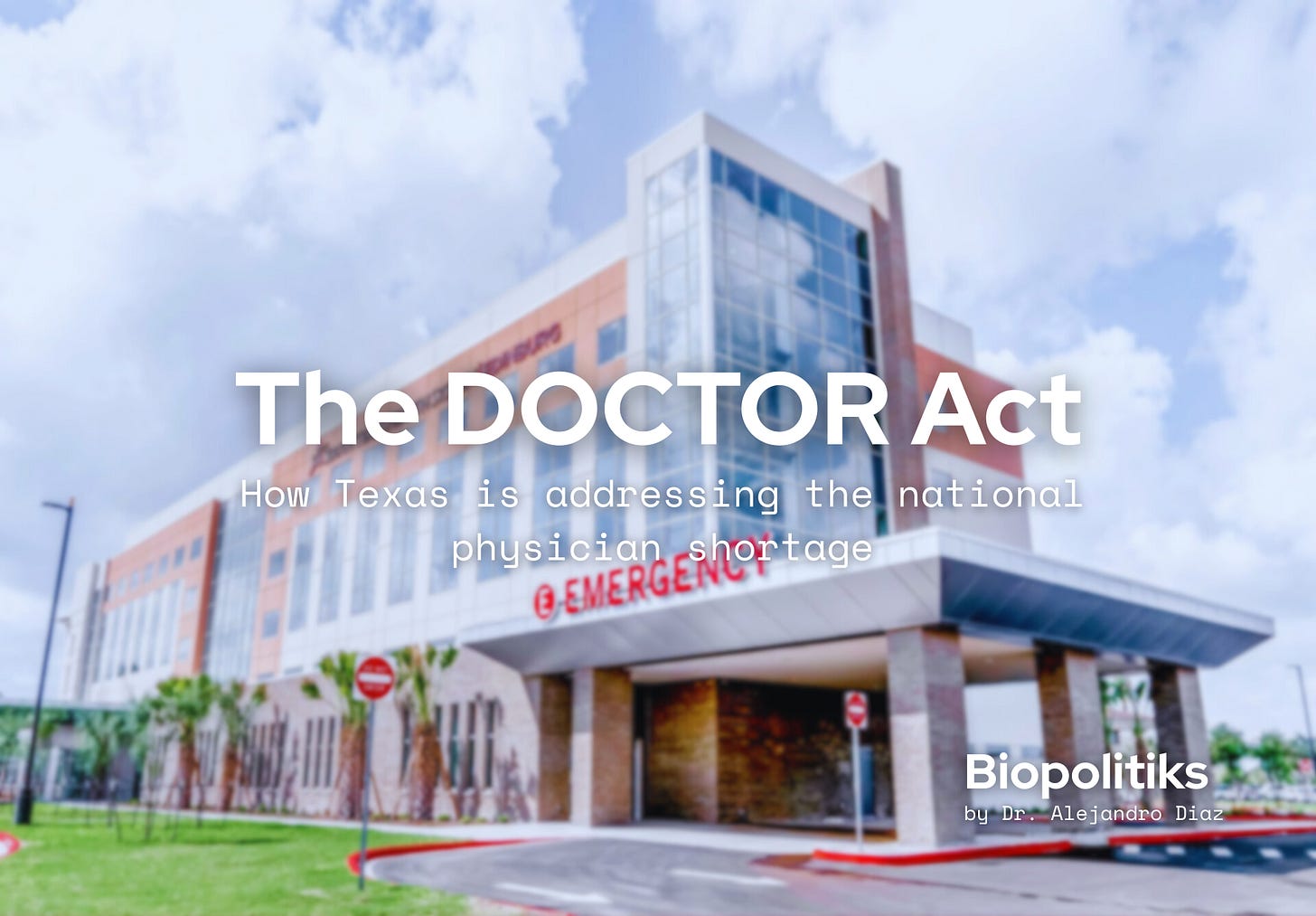
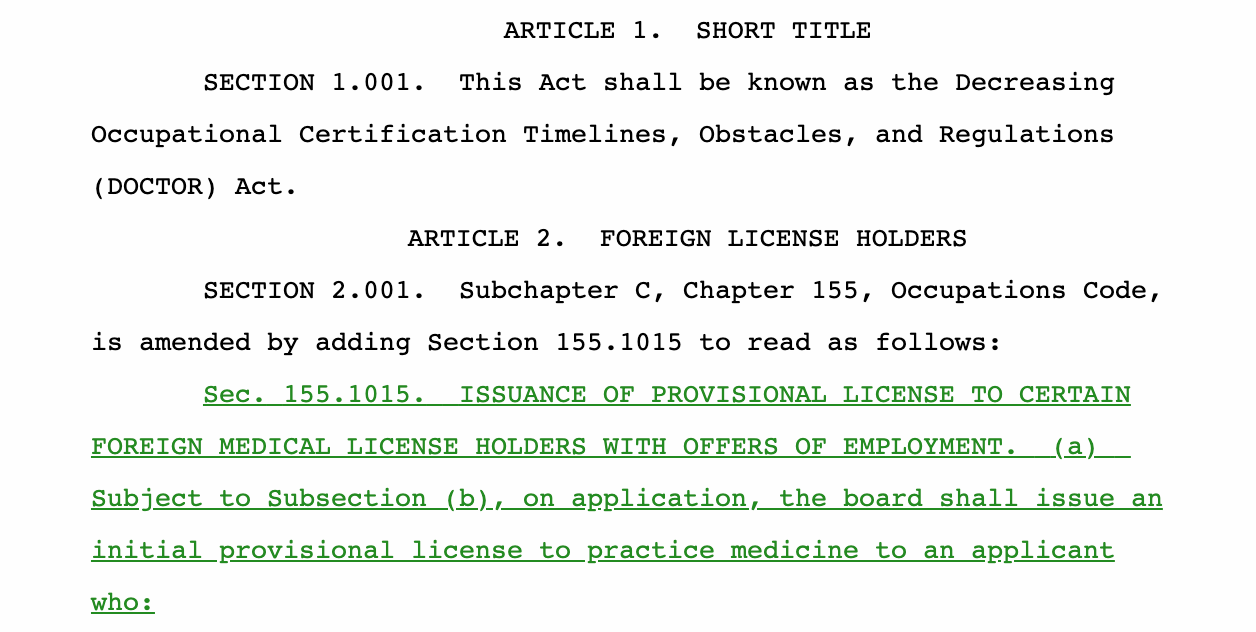
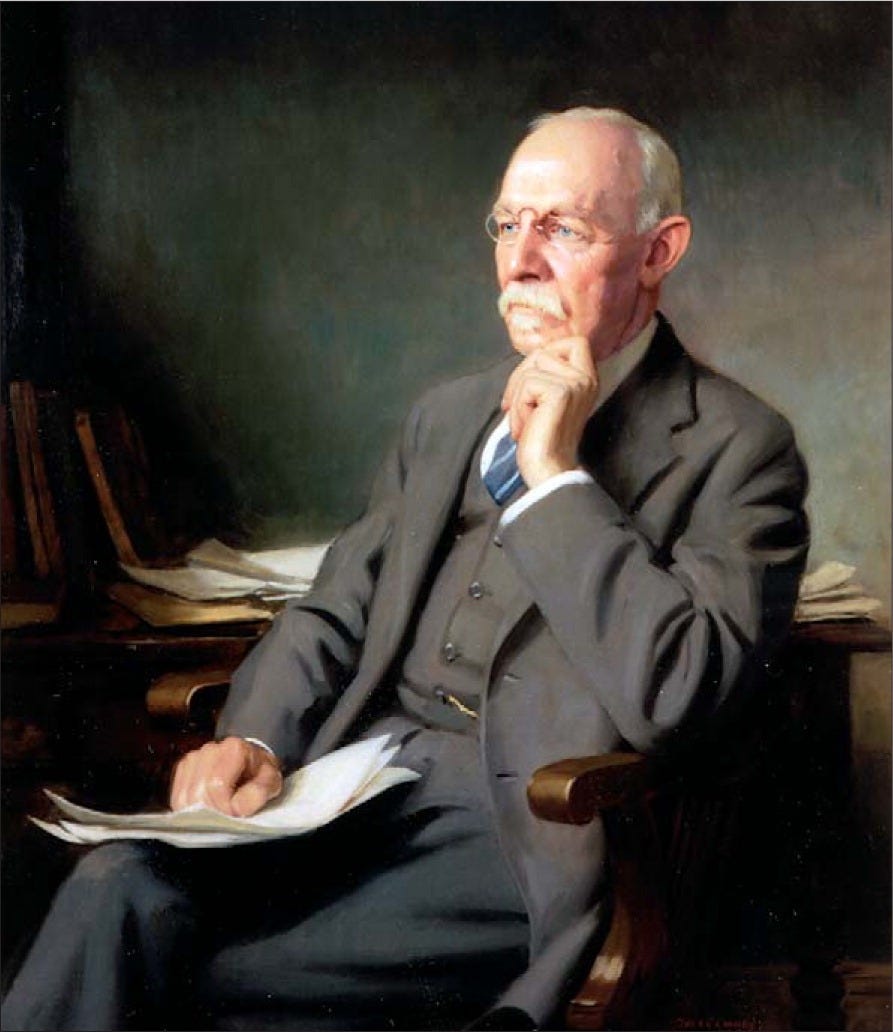
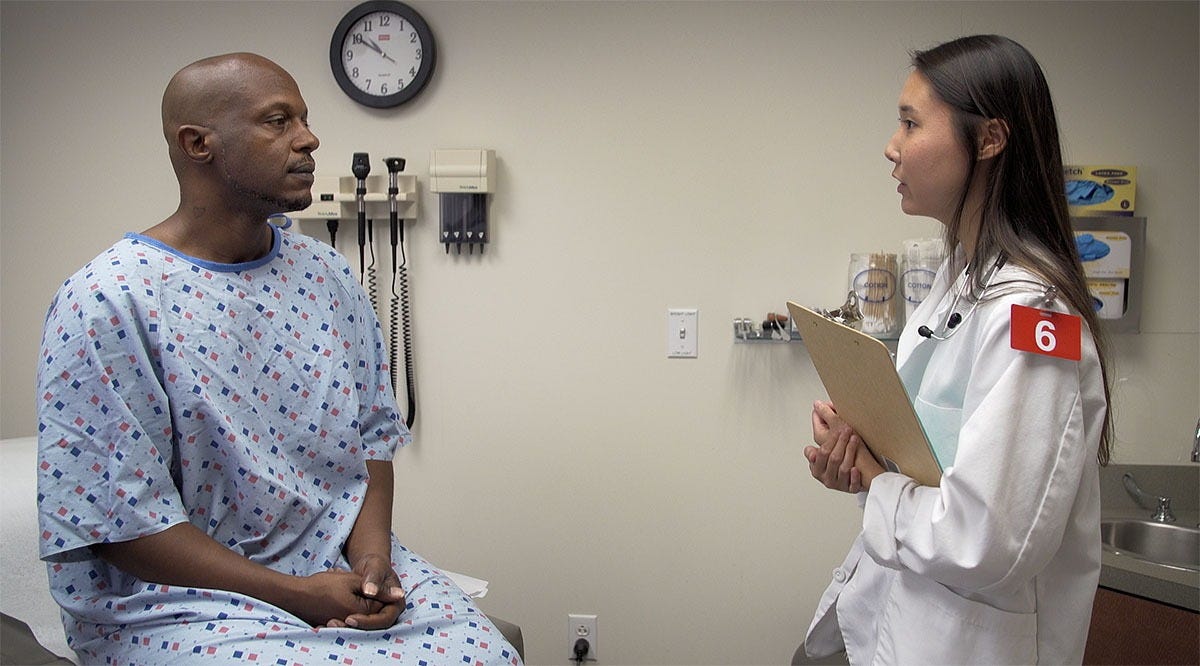
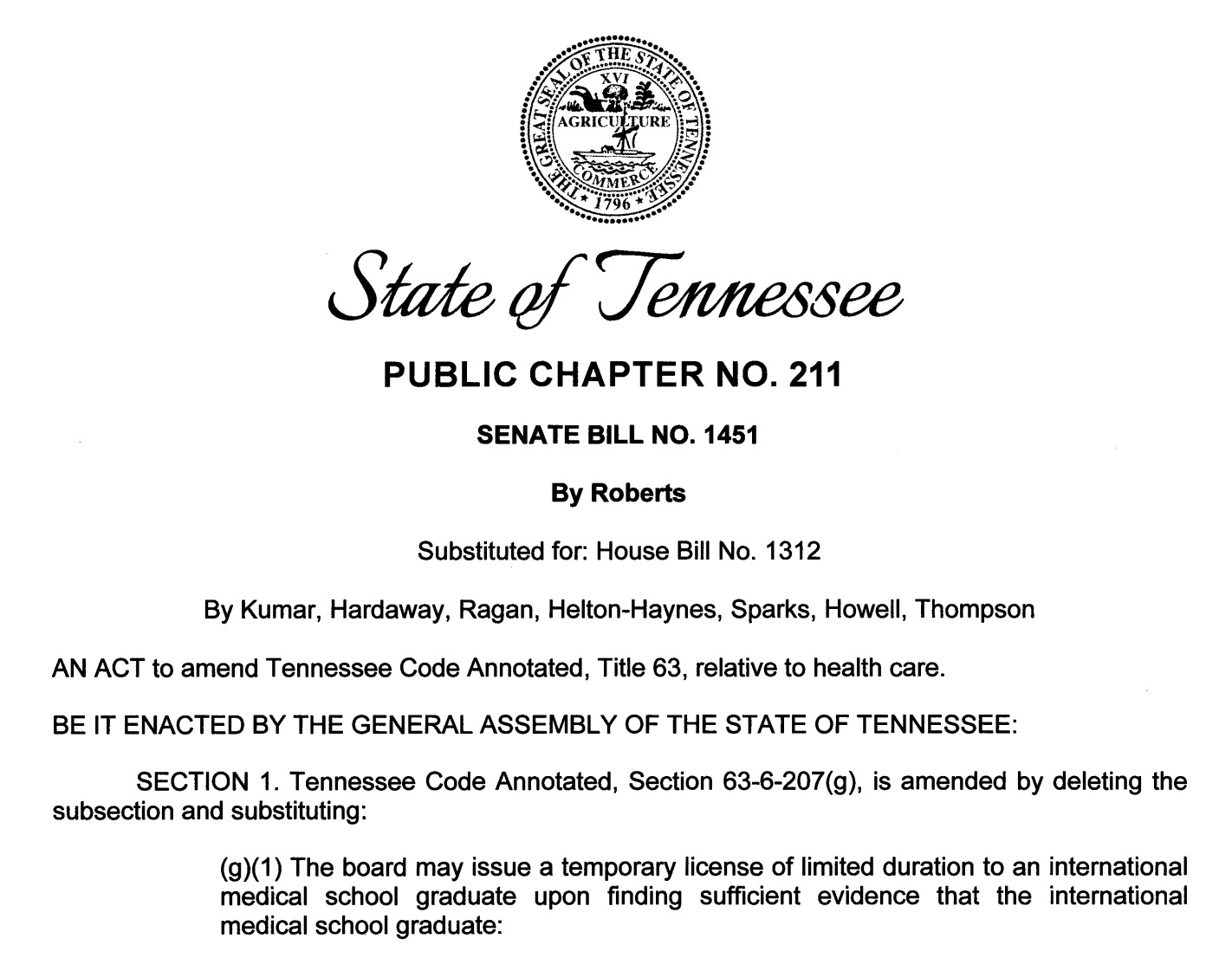
Good day, Annie.
While the ideal state of affairs is that we may enjoy perfect health most of the time, the reality is that it is not possible.
House Bill 2038 provides one way of addressing the fact that the United States is reaching a critical point regarding the shortage of physicians.
As reported by Alejandro Díaz M.D. (the author of this article), it is estimated that by the year 2030 the State of Texas will face a shortage of 20,400 physicians. Think about that.
Furthermore, six years later, in the year 2036, the national shortage will be 86,000 physicians. Think about that.
By the way, according to Google, "There are more than 203,500 non-U.S. international medical graduates currently working in the United States."
So you see, Annie, by now it is likely that perhaps at least one of these international medical graduates has already participated in a medical team treating you; and not messed you up.
House Bill 2038 is an important step in the right direction.
Thank you, Dr. Alejandro Díaz and Rep. Vince Perez for your work and dedication.
Stay away from the medical community. They only cause problems. Eat better, exercise and get outside in some sunlight everyday. Yep. I don't need a foreigner with a medical degree to mess me up.